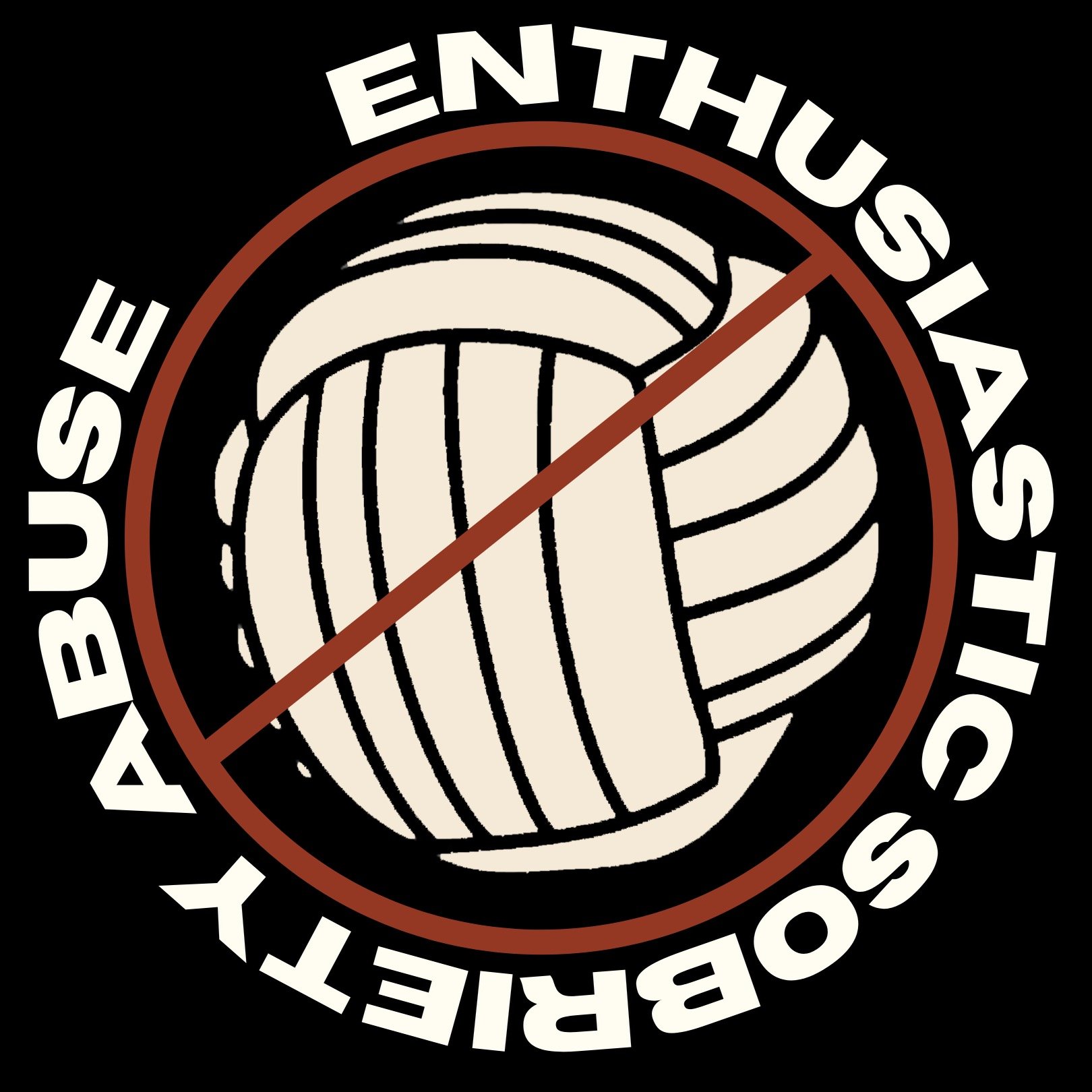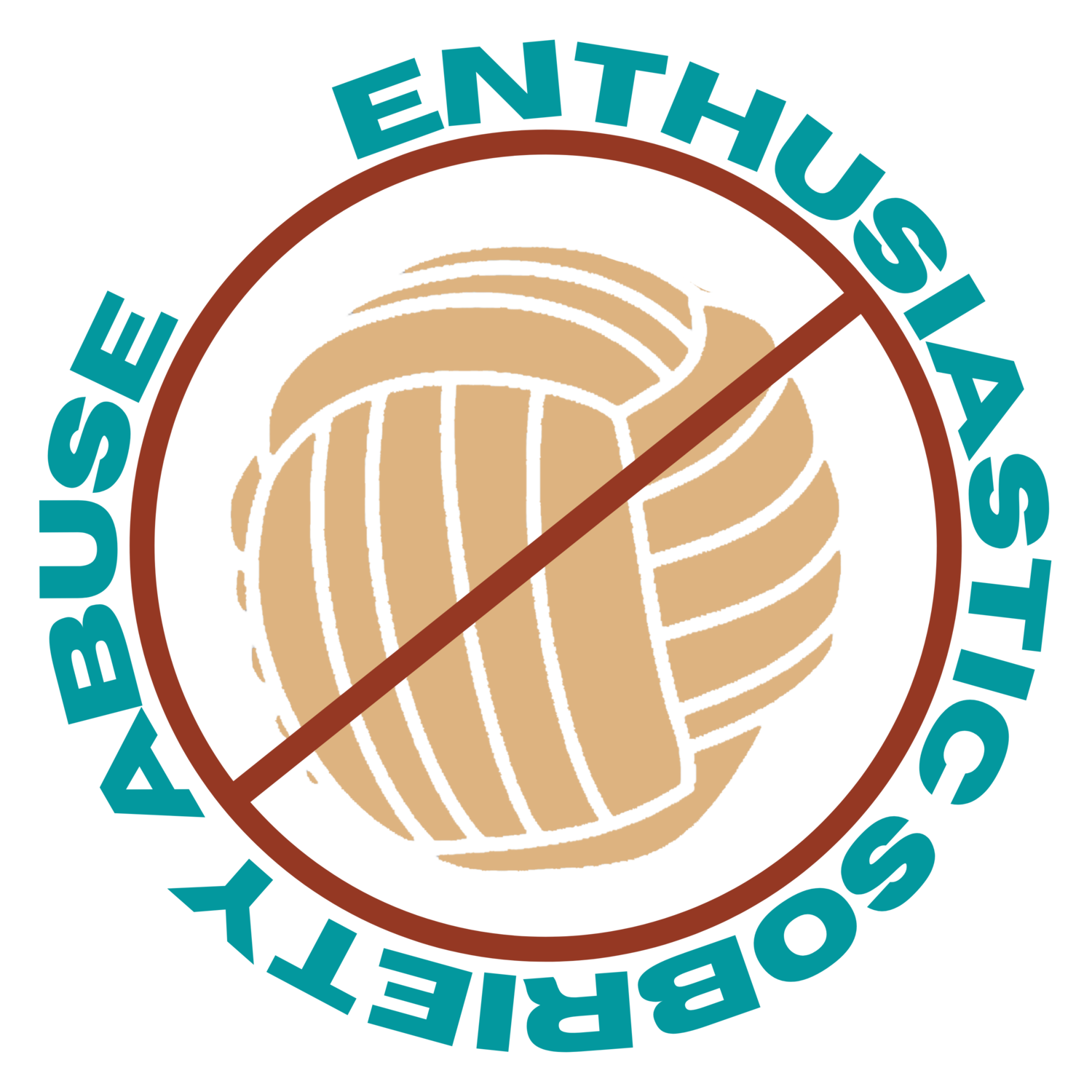
Grief & Loss Support for Enthusiastic Sobriety Survivors
Content Warning:
This page includes information and Enthusiastic Sobriety Survivor stories about death, neglect, suicide, overdose, self-harm, harmful remarks and attitudes from The Program and other sensitive topics. If you or anyone you know is suffering from any of these, there are resources listed below. Reader discretion is advised.
Nearly all survivors and current members of Enthusiastic Sobriety Programs have experienced loss. A lot of our friends are no longer here - and most of us feel that they would still be here if they hadn’t experienced the abuse they suffered in The Group.
This page intends to provide resources for coping with death, especially focused on suicide and overdose, as well as expose how Enthusiastic Sobriety Programs handle program deaths, suicidal ideations and attempts of their current clients and survivors.
These testimonies may cause emotional dysregulation. They are heartbreaking, infuriating and may cause a rise in grief and sorrow. We need to expose these programs and illustrate the effects of the harms done. Please look into the support resources for additional help.

Helpful Ways to Mourn
Mourning is often a complex process. There is no shame in however you process the experience. Here are some of the ways which have been helpful to others when coping with loss.
-
It always takes a while to accept that loved ones are gone. It can be weeks before the reality fully sets in. Know that this is perfectly OK.
Grief has a variety of variables including age, duration of the relationship, and the type of death (traumatic, natural, sudden, etc.) that play into how one processes death.
In other words, we all face different circumstances with loss, so it makes sense that we take different amounts of time.
Eliminate some stress by not setting a time expectation for “acceptance.” Death is scary because it’s surrounded by mystery. It’s helpful not to put a time limit when you find yourself dealing with a loss.
-
Mourning a person can be a large mix of emotions - both positive and negative. Remembering how a person impacted your life can bring a sense of comfort in a distressing time.
Cherishing songs, books, or hobbies they introduced you to, or life lessons that they may have directly or indirectly taught you can bring up feelings of appreciation that can exist simultaneously with feelings of sadness.
-
Talk about the loved one, how much you miss them, and your good memories of that person.
Just because we can’t see our loved ones after they’ve died, doesn’t mean we can’t speak to them. There are many belief systems that emphasize the importance of communicating with your ancestors, and it’s a lot less strange than it might sound.
Don’t rush through getting rid of your loved one’s belongings. Take your time to process, so you don’t inadvertently give away something you may wish you had later.
-
Coping with loss can be challenging. It may take a while, but we learn to adjust to reality without our departed loved ones. Allowing yourself time to heal is one of the most important steps. Know the signs that you need help. For those with a history of depression, the grieving process may be more challenging.
If a person had depression before a loved one passes, they’re more likely to experience ‘complicated bereavement.’ This was removed from the last Diagnostic and Statistical Manual of Mental Disorders, but once embolizing grief goes more than six months, it truly is depression.
Some may even experience depression for the first time after a loved one passes. If you need help, reach out to friends, family, or professionals who can provide you with options. There’s no shame in getting the assistance you need. You simply need to ask for it.
Understanding Grief Counseling
-

Understanding Therapy for Grief and How It Can Help
Therapy for grief, or grief counseling as it is often called, is designed to help you process and cope with a loss — whether that loss is a friend, family member, pet, or other life circumstance.
Grief affects everyone differently. It also affects people at different times. During the grieving process, you may experience sadness, anger, confusion, or even relief. It’s also common to feel regret, guilt, and show signs of depression.
-

Grief Counseling: Definition, Types, Techniques, and Efficacy
Grief counseling, also known as bereavement therapy, is a form of therapy intended to help you cope with loss, like the death of a partner, family member, friend, colleague, or pet.
Grief counseling can help people of all ages work through sorrow and other emotions that are part of a normal reaction to losing someone. Grief counseling can help you identify and express your emotions. If you have lost someone who was an integral part of your life, grief counseling can also help you rebuild your routine and your identity.
-

Grieving a Teenager's Sudden Death
A teenager's death can be difficult for any parent, family, friends, and loved ones. Parents who are mourning the death of their teenage child will experience many types of grief. Sometimes all at once, and at others, their suffering will ebb and flow. Regardless of how they died, a child’s death at any age is an incredibly traumatic and tragic one.
Whenever someone dies so young, it's the tragedy of a young life cut short. Your teenager’s friend will never get the chance to live life to the fullest and experience all the things that come with growing into an adult. Your teenager may soon realize the tragedy of their friend's death as they consider their mortality.
The Cornerstone Program Staff Survivor
There was this weird line of like “feel your feelings, it’ll take time…” but also you should probably make sure to get out of yourself. There was never a “take your time” or “take any space you need” kind of approach.
And at a certain “spiritual level” it was like you shouldn’t really feel grief. The father of a woman I was on staff with died and it was not really talked about (and we talked about everything), it was like business as usual to just carry on. It was weird. Like grief was too real of an emotion that tied you to the outside world, so you couldn’t fully embrace it. The things we did talk about were kind of fake. It was over analyzing everything, but not grief. Grief is real.
While I was on staff, another staff member’s uncle died by suicide. Other staff members said that suicide was selfish and that uncle was an asshole for it because it left a burden on the family. They specifically called the uncle an asshole.
Therapeutic Methods for Grief Counseling
-

Complicated Grief Treatment
Complicated Grief Treatment (CGT) is a short term therapy that addresses the issues that complicate grief and helps strengthen a bereaved person’s natural adaptive capacity. There are components of the therapy to help people get to know grief, manage strong emotions, think about the future, rebuild strong relationships, think about the death, revisit reminders of the loss and access living memories.
-

Traumatic Grief Therapy
Traumatic grief therapy is a type of treatment used to help people who have experienced the sudden death of a loved one. When a loved one passes away suddenly, the people left behind often experience traumatic grief. In order to deal with this intense kind of grief, therapy can be a helpful and healthy way to process painful emotions.
-

Additional Mental Health Resources
Visit ESAAlliance’s Mental Health Support page for additional resources on types of therapeutic methods, survivor recommendations, and therapist directories. Many types of therapy that are suitable for grief counseling are explained in detail with suggestions on how to find a therapist that is right for you.
“Amy Weiland said she ‘isn’t afraid to speak ill of the dead’ and that someone was a ‘pussy for taking the easier, softer way.”
— The Crossroads Program Survivor
“Less than two days after someone died in The Group, we were told to ‘live in the solution.’”
— The Pathway Program Survivor
“When I was seeking advice for grieving a friend who recently overdosed, Staff told me to ‘let it go’ and ‘you’ll get over it.’”
— The Insight Program Survivor

We Don’t “Move On” From Grief. We Move Forward With It.
In a talk that's by turns heartbreaking and hilarious, writer and podcaster Nora McInerny shares her hard-earned wisdom about life and death. Her candid approach to something that will, let's face it, affect us all, is as liberating as it is gut-wrenching. Most powerfully, she encourages us to shift how we approach grief. "A grieving person is going to laugh again and smile again," she says. "They're going to move forward. But that doesn't mean that they've moved on."
The Crossroads Program Survivor
I know a lot of people that overdosed or committed suicide that I met through The Group. But I don’t think I attended a single funeral while in The Group. There was no space made for grief. Counselors always down played these deaths and they weren’t really talked about. If someone overdosed, it was just the natural order of things, we were always told without sobriety that only “jails, institutions, or death” awaited us.
If someone had taken their own life all the blame was placed on them and the counselors would talk about how fucked up they were. I remember our senior counselor saying one guy was a “pussy” for taking his own life. Deaths were talked about in a way that played back into their narrative; this was all used to scare us. That fear was one aspect of their control over us. If we didn’t stay sober we would die. We were told this over and over. And we were shown lots of proof.
American Academy of Pediatrics finds youth experiencing homelessness are twice as likely to attempt suicide as their peers who are not homeless.
Deaths from Georgia Enthusiastic Sobriety Programs
Deaths from Arizona Enthusiastic Sobriety Programs
Deaths from Missouri Enthusiastic Sobriety Programs
Deaths from North Carolina Enthusiastic Sobriety Programs
Deaths from Colorado Enthusiastic Sobriety Programs
Deaths from Texas Enthusiastic Sobriety Programs
The Pathway Program Director Survivor
We were rarely allowed to seek medical attention and not allowed to have medical insurance as it was “living in fear” I witnessed Bob and Joy tell people that asthma was caused by one’s mother. You could not use an inhaler. You could not use insulin. You could not have an allergy. Bob and Joy advised someone who had hepatitis C to not seek medical attention and told him it was a spiritual condition. He eventually went into liver failure and died. Bob and Joy and Wendy and Clint Stonebraker then accused him of getting high. For months after he died they made fun of him. Clint was witnessed at a staff function ash-ing a cigarette into an ashtray while stating it was the person’s ashes. This person had a wife and 2 young kids. The wife and kids were promptly kicked out after the death.
And one more thing about medical insurance. Once when I was at Bob and Joy’s house, I saw a bill for health insurance. They had it, but no one else could. There are many stories of people experiencing these beliefs and pressure. The worst are when someone dies as a result. I also witnessed a staff member who developed lung cancer and was told by Bob and Joy that it was a lack of being spiritual and doctors don’t know shit about spirituality. That person didn’t get proper medical attention and died a miserable death with no pain medication or treatment.
Grief & Loss Support Resources
-

The Compassionate Friends
A self-help organization offering friendship, understanding, and hope to bereaved families that have experienced the death of a child.
The mission of The Compassionate Friends: When a child dies, at any age, the family suffers intense pain and may feel hopeless and isolated. The Compassionate Friends provides highly personal comfort, hope, and support to every family experiencing the death of a son or a daughter, a brother or a sister, or a grandchild, and helps others better assist the grieving family.
-

Love In The Trenches
Our grief support group is for parents who have lost a child to an overdose or addiction. We meet bi-weekly by Zoom to discuss our grief, share memories of our children, and support one another.
As parents, we share a unique language forged by having loved and lost an addicted child. We want to cope with our anguish and grief and honor our children.
Losing a child to a substance use disorder can be lonely, isolating, and painful. LITT is here for you.
-

Alliance of Hope for Suicide Loss Survivors
The Alliance of Hope for Suicide Loss Survivors was created by survivors for survivors. As a 501(c)3 charitable nonprofit, we provide online healing support and other services for people who are coping with devastating loss to suicide. Our online forum operates like a 24/7 support group. Our website contains support resources and information on the survivor experience.
Enthusiastic Sobriety Crisis Support
It's important for people to know more about what they can do to help prevent suicide. Enthusiastic Sobriety Abuse Survivors have seen an alarmingly high suicide rate coming from The Group.
Most former members reach out to their peers, both directly or indirectly for mental health support. Here is a guide to help you if someone reaches out with suicidal ideations or in a mental health crisis and to also prepare for a safety plan for yourself.

-

National Suicide Prevention Lifeline
We can all help prevent suicide. The Lifeline provides 24/7, free and confidential support for people in distress, prevention and crisis resources for you or your loved ones, and best practices for professionals in the United States. 1-800-273-8255
-

Crisis Text Line
Crisis Text Line provides free, 24/7, high-quality text-based mental health support and crisis intervention by empowering a community of trained volunteers to support people in their moments of need. Text HOME to 741741 to connect with a Crisis Counselor
-

The Trevor Project
We provide information & support to LGBTQ young people 24/7, all year round. If you are thinking about harming yourself — get immediate support. Connect to a crisis counselor 24/7, 365 days a year, from anywhere in the U.S. It is 100% confidential, and 100% free. We’re here for you. Text “START” to 678-678
Tell Your Story
Share your story to help other survivors feel heard, seen and understood. We aim to expose the consistent patterns of abuses in Enthusiastic Sobriety Programs and prevent potential families from years of suffering from undue influence and abuse. These survivor testimonies can be submitted anonymously by former group members, staff and parents.










